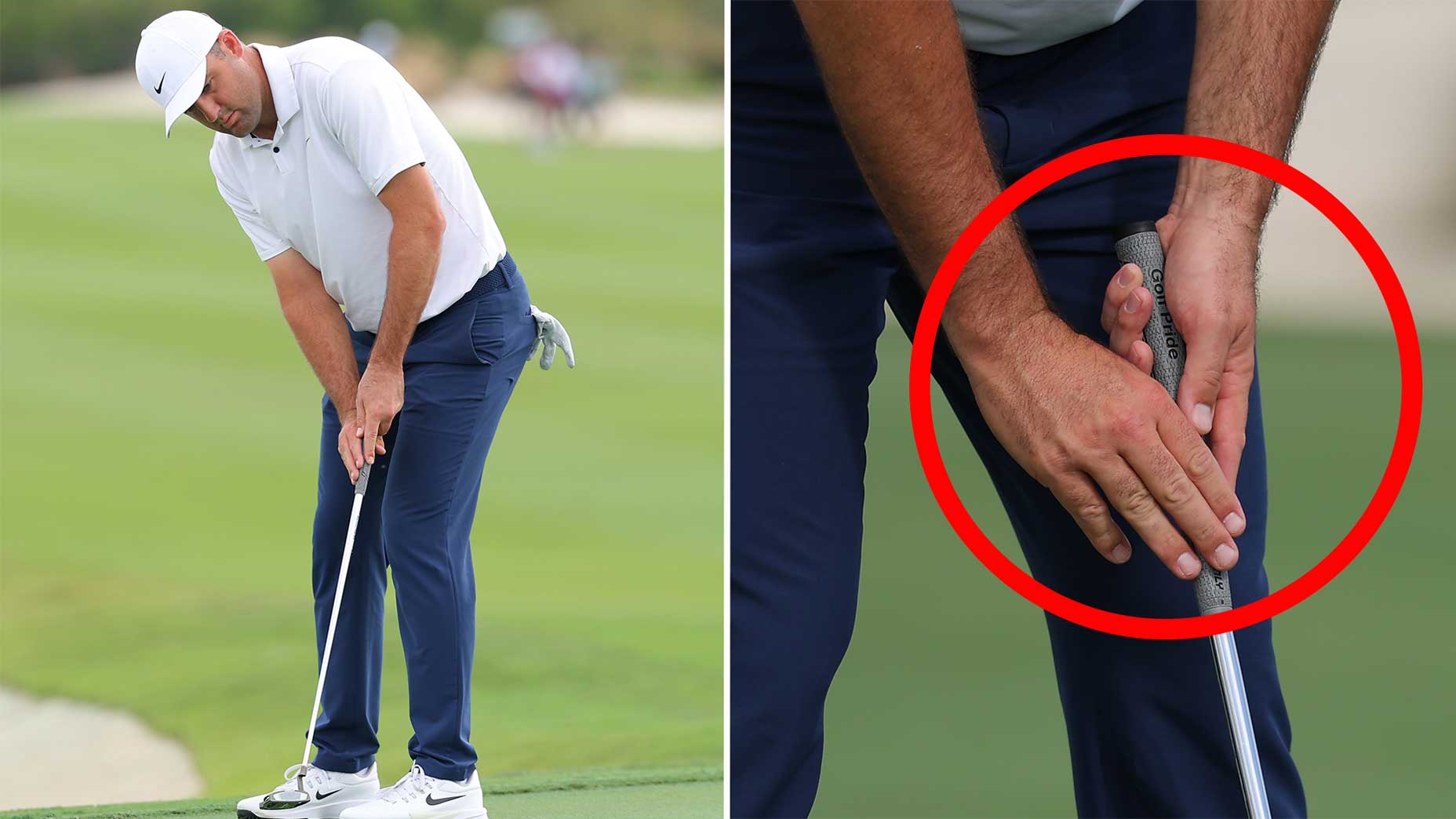Justin Thomas hits his tee shot on Thursday on the 4th hole at Albany Golf Course.
Getty Images
Justin Thomas admitted his front-nine tee shots on Thursday didn’t go well, as balls would start left of his target, then drift more left. He figured that might happen, though.
This, too.
“I drove the hell out of it on the back nine,” he said.
This week’s Hero World Challenge holds a somewhat unique spot on the current pro golf calendar, besides the fact that it’s played at paradisiacal Albany Golf Course in the Bahamas. While the Tiger Woods-hosted event isn’t exactly silly — $1 million is handed out to the winner of the 20-man tournament — it also isn’t Masters-serious, either, and that offers the opportunity to tinker. Scottie Scheffler is playing with a new claw putting grip (to great success, too, if the first couple of days are any indication). Akshay Bhatia is playing with a new driver.
And Thomas is playing with a longer driver, from 44⅞ inches to 46, the maximum length allowed under the rules. Why not, he and his caddie, Matt Minister, thought.
“I mean, I’ve messed with a longer driver this offseason and I put it in play today just because with not much wind, I felt like it was a good opportunity,” Thomas said. “I can use it at home, but putting something in and playing it in competition, I think, is just different.
“Didn’t go very well on the front, but again, they weren’t necessarily terrible drives. I kind of said that to Rev [Minister’s nickname] walking up nine — they all felt like pretty good swings; I was just barely kind of starting left of my window and just going left versus I like the ball falling right. And just with it being a little bit longer, I just kind of have to get the club out in front of me and get on top of it a little bit more.”
So it takes work. It’s not for everybody, not even the pros.
But there are pros to playing it. Think physics. A longer club means a longer swing arc, leading to more room to accelerate ahead of contact — and potentially more distance. Thomas said he thinks he’s getting 2 or 3 more mph in ball speed, and 15 extra yards.
It could stick then, though understandably not everywhere. It’ll be an equation. Tighter courses equal shorter driver; open courses mean longer driver.
“I want to be able to have that because I think there’s some courses that it’s a huge advantage,” Thomas said. “This isn’t necessarily one. You know, some of those drives that I hit in the — I don’t know if you want to call it sandy area, desert area, whatever the heck it is — you know, those aren’t bad tee shots a lot of places. If it’s just in the rough, I’m going to be able to get around the green, versus on 3, I’m up against a bush.

